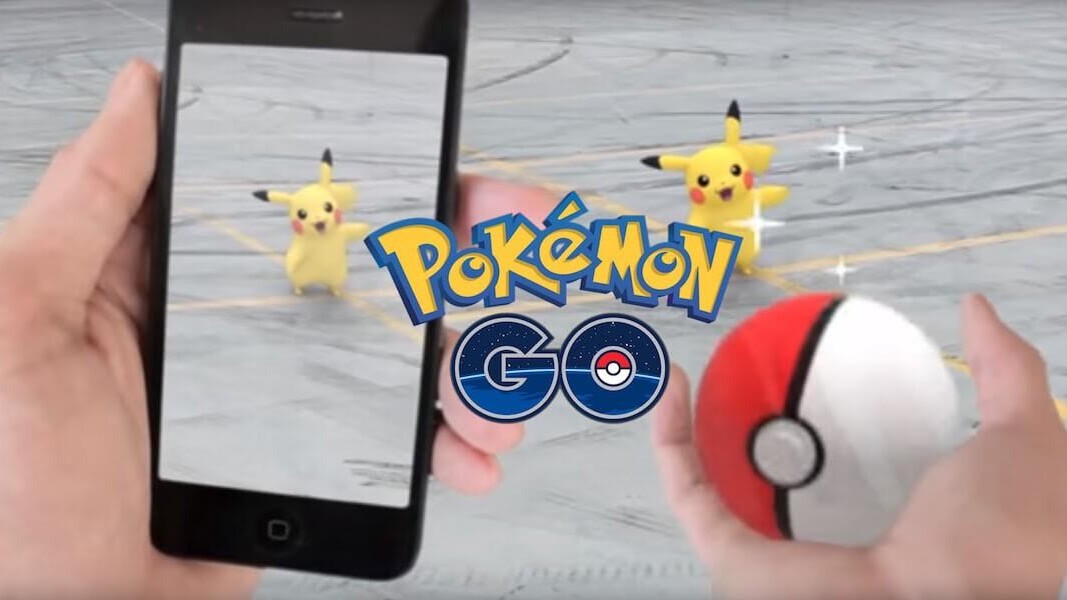
Pokemon Go is a different kind of Pokemon experience than anything you’ve ever seen from Game Freak. The mobile gaming app uses augmented reality to put you face to face with a Pokemon, allowing you to explore your local area and find these creatures hanging around your neighborhood and, of course, catch them all.
I gave Pokemon Go a beta test for the past couple of days, and while the experience is interesting, it definitely comes with a few setbacks.
You start off with a character customization, during which you can set your username, outfit colors, and gender. You don’t get a Pokemon from Professor Oak at the beginning because you don’t need to: the Pokemon catching mechanism is simply walking around your ‘hood, finding one, tapping it on the map, and flicking the ball at them with the right power so it hits the target.
Depending on how strong the Pokemon is (which sometimes could be a mystery), you’d opt for the Great or Ultra Ball instead.
I started the game sitting in my house, and it quickly dawned on me that this game is more of a fitness game than anything. You need to actually move to search for Pokemon and nearby gyms – and you can’t battle at gyms unless you’re several feet away.
It makes sense from a realism point of view – after all, Pokemon trainers can’t just sit at home and let their Pokemon do all the work, you have to journey out to the world to earn your badge. But from a gaming perspective, it can get annoying if, say, you wanted to quickly play the game while waiting in line to buy something, and you can’t do much but look around hoping for a new Pokemon in the department store.
I’m also lucky to live in a large city like New York, where there are bound to be more players and it is easier for me to find gyms and more Pokemon or items dispersed. But someone playing in a small rural town where you have to drive to get anywhere might find it boring to walk around their neighborhood and only see the same Pokemon over and over again.
It’s interesting to note that it can get extremely easy to go nuts when you spot a new Pokemon to catch. For example, while I was walking to the train yesterday I got a buzz on my phone and noticed a Squirtle hanging around. I hadn’t seen one in the wild before, so in an effort to try to get it, I nearly walked into a pole while flicking Pokeballs around.

Pokemon generally show up on sidewalks, but I can imagine this being rather dangerous for younger players who may get as recklessly distracted as I did while they’re crossing the street. This is what the $35 Go Plus peripheral is supposed to help with: you tap the device instead of the smartphone to catch the Pokemon, but that sort of takes away from the experience of finding Pokemon and working to actually catch them.
Battle mode is also extremely different in Pokemon Go: rather than selecting the moves in a turn-based mechanism, you simply tap or hold and tap to attack your opponent.
To evolve the Pokemon, you can keep battling (which as I mentioned, can get hard if you don’t have friends with the app or can’t physically get to your nearby gym) or manually power them up using found items. I was only able to test the app for about four days, so my Pokemon got nowhere near powerful enough to win gym battles consistently.
All in all, this is still Pokemon Go’s beta version and there are likely to be major gameplay improvements on the way. Personally, I’m missing the story element at the moment, as the non-RPG journey feels rather purposeless.
Pokemon Go is definitely designed to give you an authentic Pokemon Trainer experience – just be careful how you play it and realize that to be the very best, you need to put in physical work. If that treadmill won’t convince you to put in some exercise, maybe Pokemon will.
Pokemon Go is set for public release in July.
Get the TNW newsletter
Get the most important tech news in your inbox each week.









